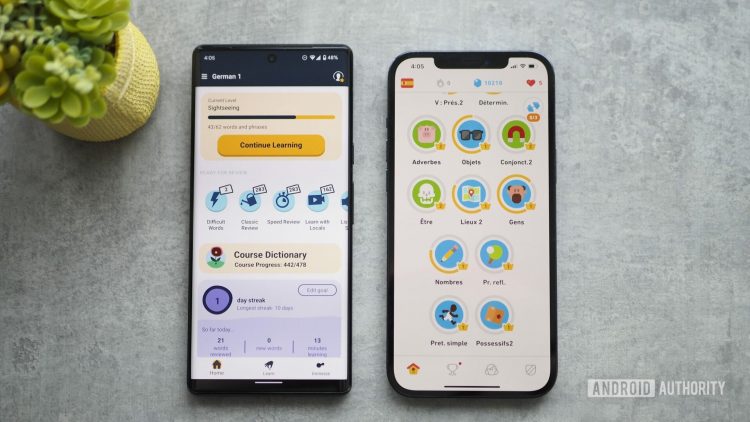Rita El Khoury / Android Authority
I grew up as a trilingual person, speaking Arabic natively, French quasi-natively, and English since I was eight years old. I was pretty happy with this versatile knowledge until I met my husband and he started teaching me some basic Spanish too. I spent a few months parsing Spanish organically — it’s relatively easy if you already speak French and someone explains to you the basic rules. Then I graduated to Duolingo to (supposedly) take my language learning to the next level. I gave the app try after try, but the end result is non-equivocal: Duolingo doesn’t work for me. So I moved my language learning to Memrise and I have nothing but positives to say about it.
Why Duolingo’s methods failed me
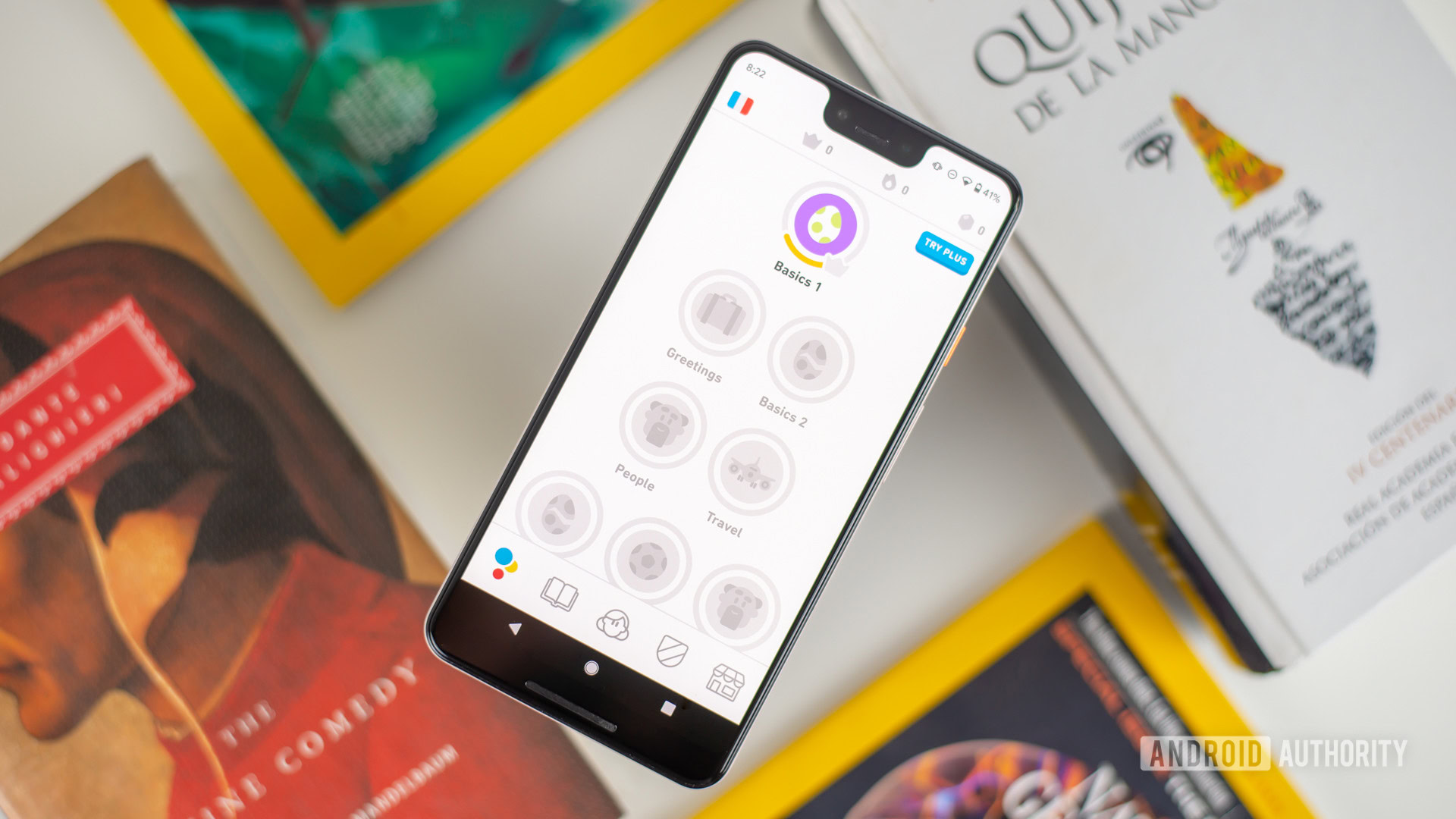
Duolingo’s boring, useless, repetitions irked me. I swear I have learned that “mujer” means woman. Duolingo doesn’t care. The gamification-centric system wants me to come back every day and repeat the same exercises again and again until I reach a new level. Only then can I unlock more lessons.
Read more: Gamification has taken the fun out of exercise and learning
Duolingo’s learning path is also geared towards pointless sentences that I won’t ever use. Things like “the cats drink milk” or “the monkey eats an apple.” When would I ever say that? (It’s worth noting that I’ve only tried a few Duolingo courses, namely French-Spanish, English-Spanish, English-German, and French-Italian, so things may be different with other language combinations.)
Duolingo was hellbent on teaching me useless sentences about cats and apples.
Despite the boredom and lack of motivation I was feeling, I kept coming back to Duolingo and giving it my best shot. I failed repeatedly. Until I decided to see what other language learning apps were out there.
Memrise’s language learning approach is different
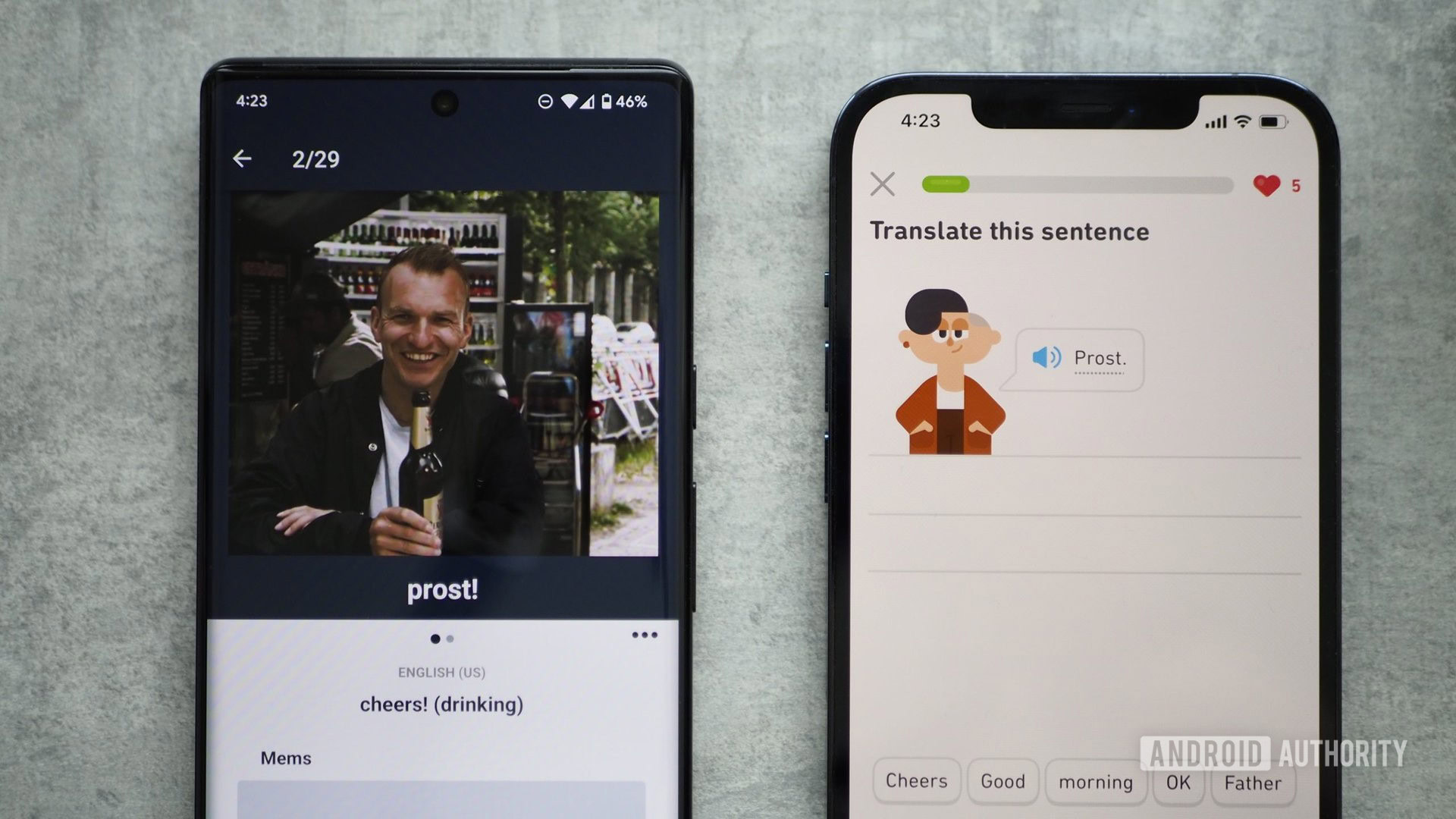
Rita El Khoury / Android Authority
After a few misses, I landed on Memrise staring at an English-German course while shrugging and thinking, “Well, how bad could it be?”
Not bad. Not at all. Actually, surprisingly excellent. 10 minutes in, I had learned a few words, and I was watching a video trying to pick those words in the middle of a conversation. The next day, I came back for a second session, then the day after that, and the one after that.
In less than a week, I had a very basic understanding of the German language.
In less than a week and with only 15 to 20 minutes per day, I had a (very) general understanding of the German language — something I never felt after countless and countless hours on Duolingo. I’m still using Memrise now and I’m nearly done with the first German course. I’ve also started learning a bit of Italian, because why the heck not.
The first thing I noticed about Memrise was the “I already know this” button when introducing new words. Tap it and the app will consider it a known word and skip it (unless you’re reviewing). Additionally, at any point, you can mark words as known or difficult, then choose to review learned words or continue learning new ones, thus progressing at your own rhythm. No more pointless repetitions.
To combat boredom, Memrise uses fewer repetitions, videos of locals, adaptable learning, and multiple quizz methods.
The second thing that struck me is how Memrise goes about teaching you words and expressions. It uses matching games, writing challenges, and pronunciation tests. The best bits are the short videos of locals pronouncing words in addition to the text-to-speech voice, and boy is there a difference between the two. Locals speak faster, smoother, and skip or mix some letters together, while the robotic pronunciation is slower and more articulate. I’m learning how German is really spoken, which is infinitely more useful when trying to understand an actual human being.
Memrise also provides a literal word-for-word translation for every expression. For example, many of us know that “Gesundheit” means “bless you,” but did you know that the literal translation is “health?” Word for word, “es ist leider nichts mehr frei” translates to “it is unfortunately not more free” but is used to convey that a place is fully booked up. Take your time to check these literal translations while learning expressions and you’ll quickly expand your vocabulary and grammar without realizing it.
More options: The best German learning apps for Android
Better yet, the courses focus on tourist-friendly expressions first like “what’s the Wi-Fi password” and “where are you from?” instead of ducks eating apples. There are grammar rules and lessons too, which helped me understand sentence structure from the beginning, instead of guessing them as time goes on.
The extra feature that sets it apart
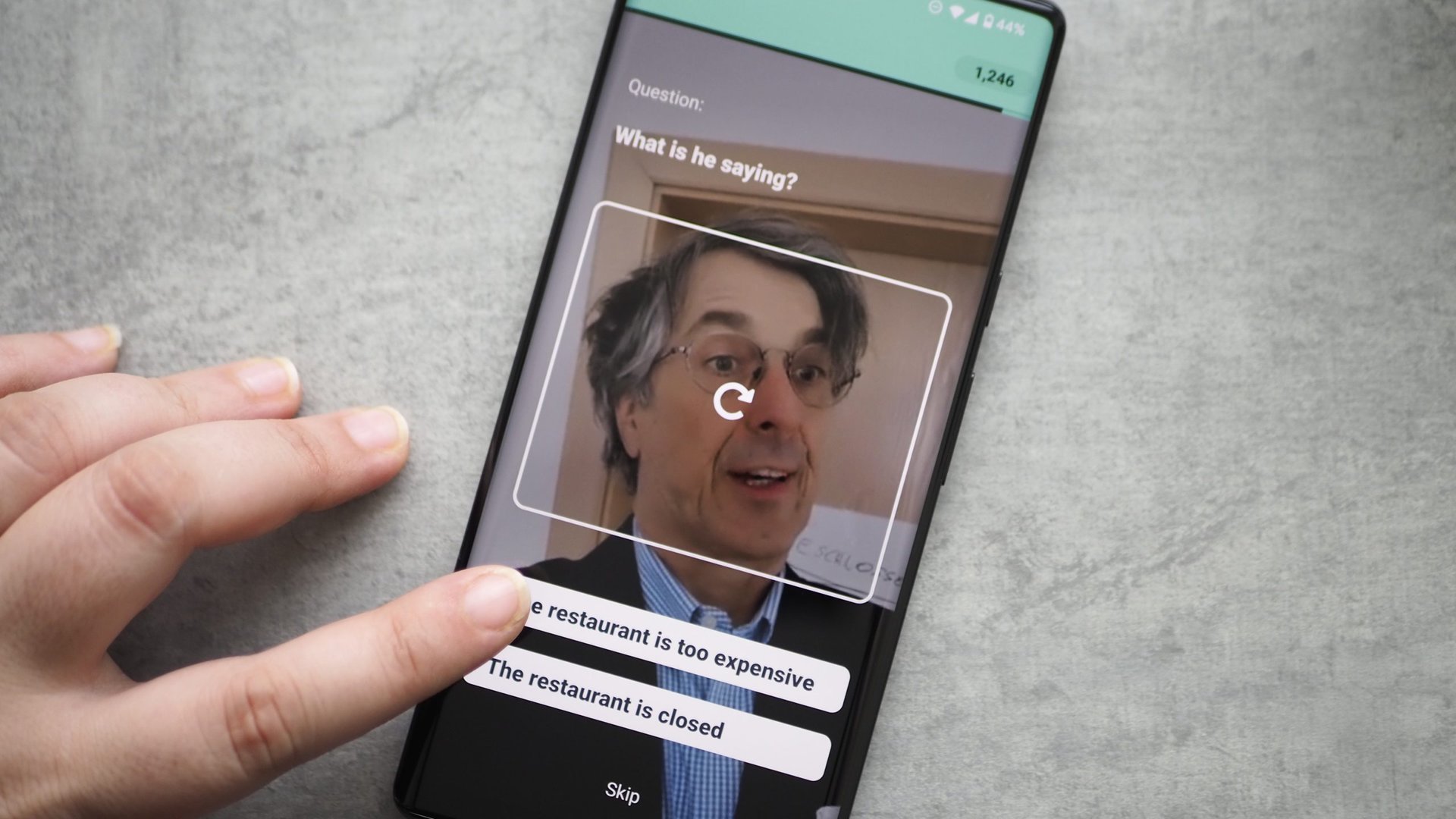
Rita El Khoury / Android Authority
The one feature that made me fall in love with Memrise is the immersive video section. It’s sadly not available for all languages, but when it is, it makes a world of difference. In it, you watch short 10- to 15-second TikTok-style videos where locals have a fake conversation with themselves (but dressed differently). It’s a bit difficult to explain, but the amateur acting, the props, and the situations; all of it is cute and funny. You’re not supposed to understand everything, but you’re supposed to catch whether a character should go left or right, whether they like sushi or pizza, whether they’re a local or they came from the US, and so on.
Memrise’s super fun TikTok-style immersion videos increased my confidence in the words I’d learned.
The app is banking on your understanding of context and your ability to pick up the words you already learned. And it works beautifully. Even from the first video, I was able to catch the situation and answer correctly despite only knowing a few words at the time.
As I said, this immersion mode is available in English to German, but I haven’t seen it in a few other courses. It’s a shame because it really makes the app infinitely funner and more useful.
After a month, I traveled to Berlin and was amazed by how much German I could understand.
After less than a month with Memrise at 10 to 15 minutes per day, I traveled to Berlin and I was amazed by how much ambient German I understood. I wasn’t speaking the language fluently, obviously, but I could grasp the general meaning of conversations, announcements, and ads everywhere around me. Last year, I’d been to Köln and didn’t get a single word besides “bitte” and “guten morgen,” so I can fully credit Memrise with all of this improvement.
Our picks: The best language learning apps on Android
A few missing features
Like any app, though, this one isn’t perfect. It took me a while to understand how to skip reviews to learn more words or how to see the list of words and expressions I’ve already learned. I’m also annoyed by the lack of a search function. I’d like to look for “noch” and see all the expressions it showed up in, for example. Plus, I noticed that some languages don’t get the royal treatment like the English-German course does — they have fewer local videos and no TikTok-style fun quizzes.
But, luckily, the service is free as long as you want, so you can test it and see if the language combo you’re interested in offers everything you need. A pro subscription unlocks an offline mode, the option to review difficult words, and a few other extras; it’s a neat addition, but by no means essential.
Have you used a free language-learning app?
360 votes
Yes, Duolingo.
78%
Yes, Memrise.
6%
Yes, another app. Tell us in the comments.
2%
No, but I’m considering them.
11%
No, and I don’t think I’ll use one soon.
3%
But is Memrise enough to master a language?
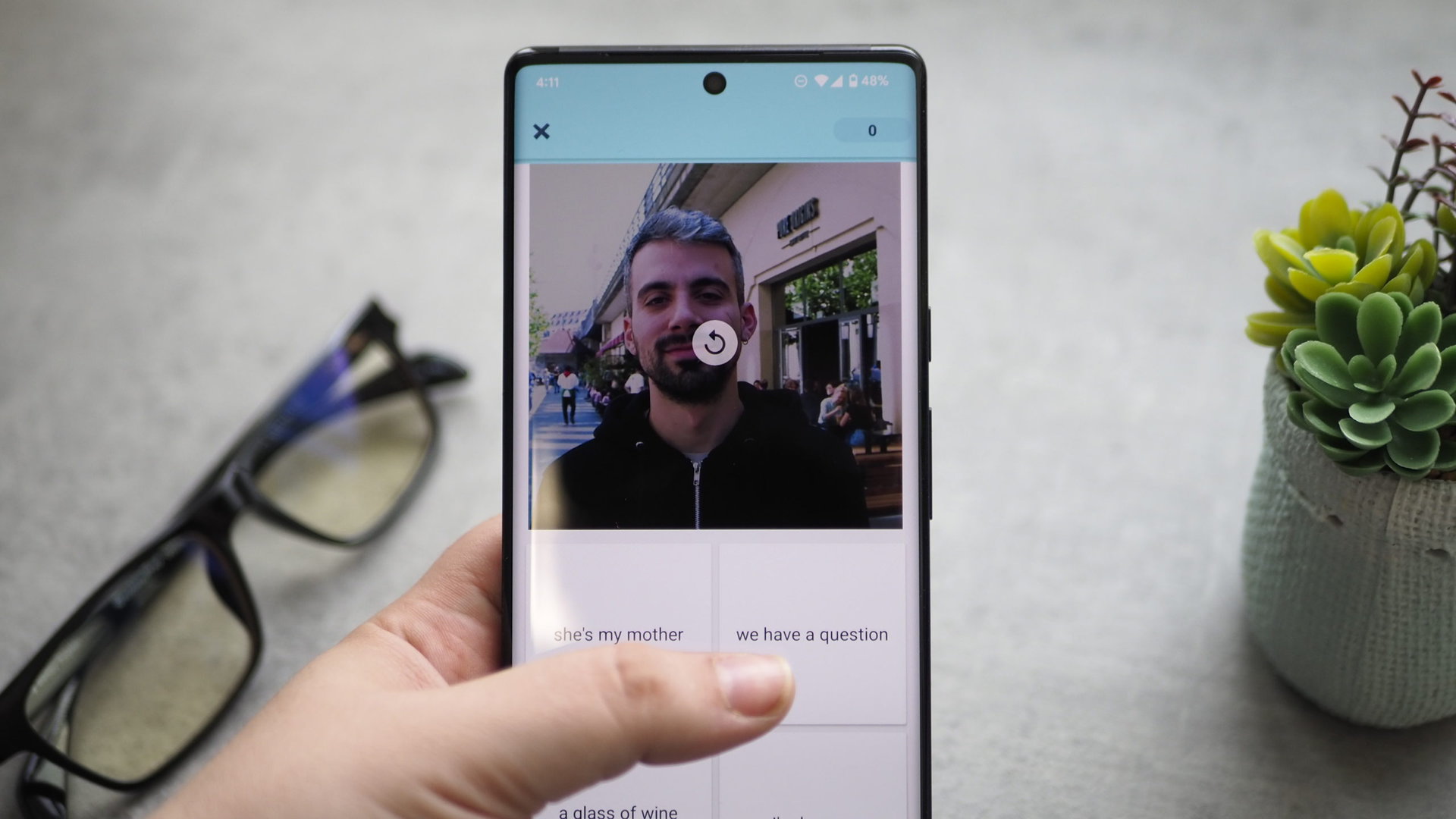
Rita El Khoury / Android Authority
Perfection aside, though, Memrise has completely won me over, which is why I’m writing this article and sharing my experience with you. The app often gets overshadowed by its mammoth competitor, but I think it deserves to be acknowledged for its different methods and fun approach.
But is it enough?
Honestly, if you’re serious about a language, I don’t think Memrise is enough on its own. You’ll need a varied mix of learning methods like videos, podcasts, grammar lessons, and interactions with native speakers. In that context, Memrise can be an additional tool in your belt.
The return on investment with Memrise is incredibly high, unlike Duolingo.
But if you’re looking to quickly grasp the essentials of a language either for a short trip or out of sheer curiosity, then this should definitely be your go-to app. The return on investment, i.e. the number of useful words and language concepts you learn in a short period of time, is incredibly high, and it leaves Duolingo in the dust.
Another opinion: Do free language learning apps actually work?
Comments
Source by www.androidauthority.com






















